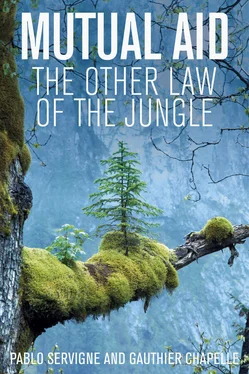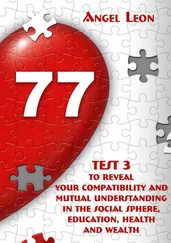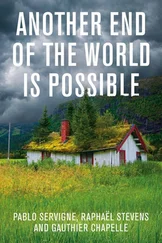Library of Congress Control Number: 2021938636
The publisher has used its best endeavours to ensure that the URLs for external websites referred to in this book are correct and active at the time of going to press. However, the publisher has no responsibility for the websites and can make no guarantee that a site will remain live or that the content is or will remain appropriate.
Every effort has been made to trace all copyright holders, but if any have been overlooked the publisher will be pleased to include any necessary credits in any subsequent reprint or edition.
For further information on Polity, visit our website:
politybooks.com
To all you who share this enthusiasm, but who sometimes have doubts.
To Marine Simon, so passionate about group dynamics, who interconnected us in 2011.
To Albert Jacquard and Jean-Marie Pelt, who inspired us so much; we had dreamed of getting you to read this book …
Nothing is solitary, everything is solidary.
Man is solidary with the planet, the planet is solidary with the sun, the sun is solidary with the star, the star is solidary with the nebula, the nebula, a stellar group, is solidary with the infinite. Take one term out of this formula and the polynomial becomes disorganized, the equation falters, creation no longer makes sense in the cosmos, and democracy no longer makes sense on earth. So there is solidarity between everything and everything, and between everyone and everything. The solidarity of men is the invincible corollary of the solidarity of all worlds. The democratic bond is of the same nature as the sun’s rays.
Victor Hugo, Proses philosophiques ( Philosophical Prose ) (1860–5)
We must help each other – such is nature’s law.
But one day the Donkey made fun of this law:
I don’t know why he made this mistake;
For he’s a good creature.
Jean de La Fontaine, ‘The Donkey and the Dog’ (1678)
This book deals with mutual aid on a theoretical level. But, behind the scenes, there was quite a bit of practice. We have been helped by many living beings over the past few years.
We would like to start by thanking Marine Simon, 1who introduced us to each other almost seven years ago, precisely in relation to this magical subject of mutual aid. It seems like we’ve known each other forever, so fundamental have been the ideas that the three of us have been able to develop, exchange, share and discover together. Thank you!
Over the past few months, we have benefited from the interest, intuition, understanding and patience of our editors, Henri Trubert and Sophie Marinopoulos, from the aptly named publishing company Les Liens qui Libèrent (The Bonds that Free). What a work of weavers! Thank you also to Élise Roy for her impressive proofreading and correction work.
A huge thank you to Charlotte de Mévius for making it possible to write, so quickly and comfortably, this manuscript that has been running through our heads for years. Thank goodness you were there! We almost didn’t write it … due to the collapse of civilization. We are touched by your friendship and your trust, and by your sensitivity to the worlds of ‘other than human’ creatures.
Thank you also to the courageous and generous reviewers of the first versions of the manuscript, for their compliments, advice and criticism: Benoît Richard, Bruno Corbara, Pablo Michelena, Marine Simon, Rachid Tahzima, Alain Caillé, Philippe Audfray, Élise Monette, Bruno Tracq, Jacques Lecomte, Matthieu Ricard and Serge Tisseron.
Thanks to Alain Caillé for his wonderful foreword, his kindness and his surprising availability given the dynamism of the convivialist movement.
Thank you to all of our loving tribes for their support: in the first place, Raphaël Stevens, the other (inter)dependent researcher and acrobat; Corinne, Helena, Vincent, Nathalie, Aline, Josué, Nathéa, Laurent, Valérie, Azul, Élisabeth, Muriel and other accomplices of the mycelium which now extends beyond the ‘Travail qui Relie’ (‘Work that Connects’); Hélène, Guibert, Michaël, Hermann and other enthusiasts of the planet Lunt; Julie, Pierre, Nico, Corentin and the satellites of the planet Giraf.be.
We also wish to thank all the pioneers, in particular the thousands of researchers who added their special touch and helped to raise up the giant on whose shoulders we stand (and it’s not just Darwin …). Seen from above, it makes us feel dizzy!
Finally, thanks to those who put at our disposal their patience as naturalists, their analytical intelligence, their nocturnal intuitions and their taste for wonder, helping us discover the countless stories of encounters between living organisms of all sizes, of all ages, of all shapes and of all origins, and to reveal their beauty and fragility.
(Pablo Servigne)
My first and most heartfelt thanks go to Élise, who helped, supported and encouraged me so intensely and for such a long period that I believe that we have gone beyond the framework of the principles of the living world … It’s your turn to accompany me in giving birth to another little monster! I look forward to expanding our family, this little superorganism to which we give so much and which returns it to us fivefold, for example when our sons, without us realizing it at the time, keep us connected and (inter)dependent.
Thank you also to all those who made it possible, materially and psychologically, for us to write this book, in a real ritual of initiation. You made all the difference! A special dedication to all my neighbours who spontaneously practise mutual aid on a daily basis, by helping out and caring. In town: Mat and Andrea; in the plain: Annette, Francis and Nadia, Jean, Bernard, Philippe G., Philippe M., Daniel and Elke; and, in the mountains: Luc and Flo, Didier and Violaine, Sam and Typhaine, Flo and Aline, Yannick and Virginie (the list is certainly not exhaustive).
A huge thank you to my parents and to my brother, who demonstrate a particularly persistent and comforting kinship altruism, to Jacques Van Helden for having been such stimulating company at the time when we were both giving a critical course in sociobiology at the Université libre de Bruxelles, and to former colleagues from the same institution, with whom we shared so many ideas and PDF files! This is all very impersonal, but I hope you will all recognize yourself in these words.
Thank you also to the anarchist friends whom I have met over all these years, and who have engraved in me, by theory as much as by example, the great and warm idea of mutual aid. Thank you to the members of the editorial board of the journal Réfractions , in particular André Bernard, Pierre Sommermeyer and Marianne Enckell, who encouraged me to write on this subject at a time when I didn’t dare. This is all your fault!
Thanks also to the editors of Imagine demain le monde , the Carnets de n’GO , the Institut Momentum, Éditions Aden, Sarkophage, La Revue du MAUSS, Etopia and Barricade for giving me the opportunity to learn my skills on this subject by writing little articles throughout the years.
I also want to name my heroes, my guides, who have inspired me and awakened me for years, to whom I feel deeply connected through the vision of the world they have passed on, a vision that is gentle, sparkling, immensely colourful, systemic and complex, and by their tenacious refusal to separate science and society: Peter Kropotkin, Charles Darwin, Lynn Margulis, Edward O. Wilson, David S. Wilson, Jonathan Haidt, Stephen Jay Gould, Richard Lewontin, Edgar Morin, Jared Diamond and Jean Claude Ameisen. You have given me so much through your writings and your talks … This book is proof of the power of indirect reciprocity. Thank you!
Читать дальше












